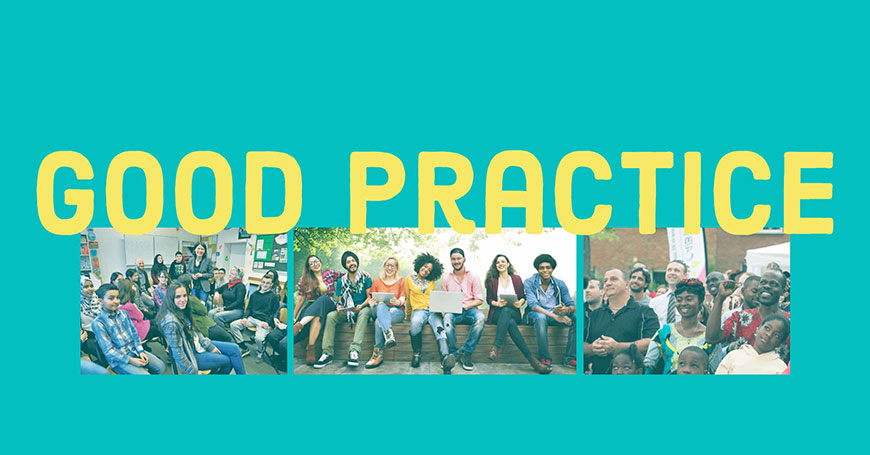Intercultural cities: good practice examples

The first step is the adoption (and implementation) of strategies that facilitate positive intercultural encounters and exchanges, and promote equal and active participation of residents and communities in the development of the city, thus responding to the needs of a diverse population. The Intercultural integration policy model is based on extensive research evidence, on a range of international legal instruments, and on the collective input of the cities member of the Intercultural Cities programme that share their good practice examples on how to better manage diversity, address possible conflicts, and benefit from the diversity advantage.
This section offers examples of intercultural approaches that facilitate the development and implementation of intercultural strategies.
Together for Stronger Communities
Purpose: Encouraging a sense of belonging and connection so that everyone can play their part in achieving Bradford’s ambitions Stimulus/Rationale: A greater sense of belonging and connection...
La Rosa dei Venti - Mediation desk
Purpose: Enhance social inclusion of women - both foreign and Italian - through cultural and recreational activities. Stimulus/Rationale: Within the framework of gender equality and...
Education projects for interculturality
Purpose: Education projects are aimed at building students competences – including intercultural competences-, raising awareness about diversity and promoting critical thinking. The City and School...


